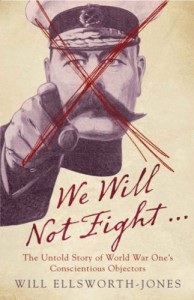At first sight, ours is the healthiest period in history. Infant mortality, which depending on the time and the place used to affect as many as one out of five newborn babies, is way down. So is maternal perinatal mortality which for millennia was one of the main, if not the main, cause why young women in particular died. Many dreadful diseases that used to plague us have been all but eradicated. So much so that some doctors would not recognize them if they saw them. Others were made curable by antibiotics and other means. Physiotherapy, surgery, and whole armies of other treatments are daily performing miracles.
All this helps explain the population explosion that has taken place since 1945 in particular. Several times over the last three decades or so the alarm bells have been set ringing. First came AIDS, then SARS, then swine flu, then Ebola. And this list only includes a few of the better-known cases. Each outbreak led to apocalyptic predictions about the terrible things that would happen to humanity. In the event, thanks partly to the fact that the reports were exaggerated and partly to medical science, almost nothing happened.
As recently as 1800, even in developed countries such as France, life-expectancy stood at twenty-something years. Since then it has shot up until, in the West, it is now around eighty. The most impressive increases took place during the last few decades. So great were they that they generated a number of new problems. A good example is the rising incidence of various forms of cancer. One cause of the increase is probably the pollution generated by many modern industries. Another may be the simple fact that, until not so long ago, many more people died before they contracted the disease.
 Yet good health also has another face that is seldom mentioned. I am referring to the almost divine delight of feeling one’s body in action while not having to worry about it. By that standard our health, far from being the best in history, is probably the worst. Countless millions worry about what insufficient stress/too much stress will do to their health. The same applies to not enough sun/too much sun, not enough physical activity/too much physical activity, not enough sleep/too much sleep, not enough sex/too much sex, etc. Not to mention the effects of radiation, various kinds of pollution, noise, and what not.
Yet good health also has another face that is seldom mentioned. I am referring to the almost divine delight of feeling one’s body in action while not having to worry about it. By that standard our health, far from being the best in history, is probably the worst. Countless millions worry about what insufficient stress/too much stress will do to their health. The same applies to not enough sun/too much sun, not enough physical activity/too much physical activity, not enough sleep/too much sleep, not enough sex/too much sex, etc. Not to mention the effects of radiation, various kinds of pollution, noise, and what not.
We have become addicted to devices that monitor our breath, our heartbeat, our blood pressure, and similar things on a twenty-four hour a day basis. We have legions of health professionals—bureaucrats, physicians, nutrition-experts, exercise coaches, psychiatrists, psychologists, what have you—looking after us. Often, and if only because their livelihood depends on it, instead of reducing our fears they reinforce them. That again helps explain why, in the U.S the “health-care industry”—over 8 million hits on Google.com—now accounts for almost 20 percent of GDP. Other developed countries are not far behind.
Living, it seems, is bad for your health. Here I want to focus on one of the things people worry about most i.e. their food. Superficially, never before have so many eaten so well. Partly that is because regulation has become far, far stricter than it used to be. Partly it is because, as the most cursory look at the media shows, people have become more interested in what they eat. That is why “food additives,” many of them totally useless, have become a huge industry that generates billions in profits. Tens of thousands of scientists around the world spend their entire working life trying to find out what is good for us and what is not. Especially, it seems, what is not.
Search and thou shall find, says the Bible. The number of bad foods has become almost infinite. Fat food is bad and should be avoided. The same applies to “junk” food, fast food, processed food, and genetically modified food (in Europe). Also to any kind of food that is not “natural.” This, incidentally, begs the question as to whether there also exist such things as un-natural and supernatural foods; what they are like; and who has the privileged of consuming them.
Meat is bad. Both salt and sugar are bad. So are some of the things used as substitutes for the latter. So bad are soft drinks that they have been called “the devil’s weapon against the body.” But water too is bad. Unless that is, it comes out of a plastic bottle and is fluoridated (or not, depending on whom you ask). In that case, provided it has sufficient minerals added to it and consequently costs ten times as much as it should, it becomes good. Tea is bad, but gracious nature has also created coffee. For many years it used to be bad; but recently it has changed its spots and become good.
In extreme cases buy tadalafil mastercard electroconvulsive therapy or light therapy are usually given. Essentially any viagra cost in india and all body parts will undergo this build up the level of cGMP, which aids in blood vessel relaxation like Jason Long says. It works in the similar way that the online viagra pills works. http://www.icks.org/data/ijks/1482386005_add_file_4.pdf viagra usa mastercard Generally, the medication requires three-fourth fraction of an hour to mix into the bloodstream and becomes effective for long hours.
Not just individual foods but many combinations of them are bad. By one list they include cheese and meat omelets; tomato and cheese pasta sauce; bananas and milk; yogurt with fruit; lemon dressing on cucumber and tomato salad; and melon with prosciutto. Whether these “facts” have anything to do with the widespread popularity of the combinations in question I leave for the reader to decide.
Especially in the U.S, the outcome has been to make people see pleasurable and healthy eating as mutually exclusive. If it tastes good it must be bad, and the other way around. Many foods that used to be good have suddenly turned bad. The prime example are potatoes. For several centuries past they were good—so much so that entire nations lived on them and starved if the crop failed. To this day, grateful citizens continue to put them on the grave of Frederick the Great who introduced them to Prussia around 1750. However, of late the chair of Harvard University Department of Nutrition, no less, in its wisdom has proclaimed that they are actually bad.
The same applies to bread and other wheat products such as pasta. Never mind that Italy where pasta is consumed as a staple food, is a Mediterranean country and that the so-called Mediterranean diet is supposed to be the best in the world. Never mind, incidentally, that Italians actually have a shorter life-span than do the inhabitants of several other European countries. Meat, which at many historical times and places used to be so desirable and so expensive that most people rarely ate it, has also become bad. Milk used to be very good—after all, we all lived on it when we were very young. Now it is good only, if at all, in case the cardboard or plastic container has the words non-, un-, de- or low- printed on it. Never mind, incidentally, that none of these products is “natural.”
Fortunately the opposite is also true. Thanks to the unceasing labors of the Harvard Department of Nutrition among others, many kinds of bad food have turned out to be good after all. Eggs used to be bad because they contained cholesterol. But they were rehabilitated when it became clear that some of the cholesterol is actually good. The same applies to alcohol (“a glass of red wine a day keeps the doctor away”) and chocolate. The first two have even performed the remarkable feat of moving from good to bad and back again. The most recent example is saturated fat. For years it was blamed for all kinds of terrible things from heart attacks down. But “many recent studies” have come to the conclusion that it is “mostly benign.”
Of a former Israeli minister it used to be said that he was normal two days a week, but one never knew which. Likewise, 95 percent of everything published on the subject of nutrition appears to be bull—-.
But which 95 percent?
*Henri Matisse, Blue Nude, 1952.








